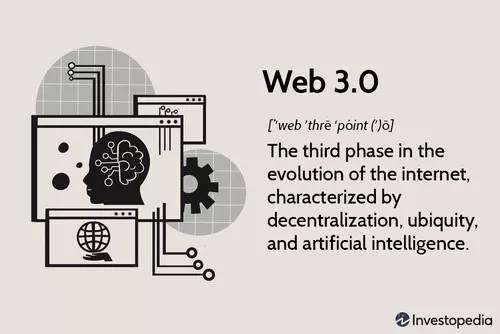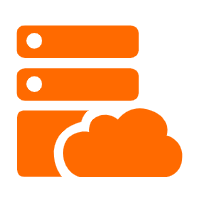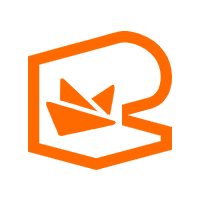As the Internet has become more expansive and borderless, technology has become smaller and more immersive. We're at the dawn of a new digital innovation - some might say a revolution - in the form of Web 3.0.
The components and technologies thriving in this ecosystem are becoming mainstream, at least by name. Almost everyone has at least heard of cryptocurrency, and the NFT marketplace has gone boom and bust amid tons of press and fanfare in the space of what seems like only a few weeks.
Another tech buzzword that has gotten a lot of press lately is the Metaverse. Ever since Facebook rebranded itself as Meta, companies, developers, and users worldwide have been trying to find a way to dive in - or cash in - on this future, virtual world.
The concepts, implications, and technologies are nothing new, but we've finally found a place to make them a reality.
Simply put, Web3 is the future of computing. In a way, this iteration brings us full circle toward the original intentions of the World Wide Web as a free, decentralized means of interacting, collaborating, and communicating without boundaries.

Rather than technologies that allow us to interact from behind a keyboard or smartphone screen, Web 3.0 and the Metaverse promise meaningful, fully immersive experiences within the virtual worlds of our creation.
Web3 began as a concept known as the Semantic Web that Tim Berners-Lee first described in a 2001 paper on the future of computing. The idea was to create a means of contextualizing human language, giving it structure and meaning and converting it into a language that machines could understand and utilize.
The explosion of Web2, which is what we are experiencing now, has brought the possibilities of Web3 beyond the concepts envisioned by Berners-Lee over 20 years ago.
Although there is no standardized model of what Web 3.0 should be, some core features define where we currently stand in its development.
This will break the stranglehold Big Tech has on society and our information - and put the power back into the hands of users.
Computers are moving closer to understanding and mimicking how humans think, communicate, and interact through AI-based technologies like NLP and machine learning.
This latest generation of the Internet is also ubiquitous. The decentralized, open-source structure will make Web3 freely available from anywhere and to anyone who wants to use it.
One of the most prominent applications of Web3-related technologies is the emergence of the blockchain. This distributed digital ledger system is built on an open-data structure that provides new levels of transparency and security.
Intelligent contracts created and stored on the blockchain are immutable and constructed using predetermined logic. Information and transactions are verified and executed within the software stored on the blockchain, and they are all but permanent once they've been added. This allows complete transparency and accountability, with self-governance enacted by a decentralized autonomous organization comprised of individual users.
The best-known application for blockchain technology is cryptocurrency, but it is far from the only one.
For example, EthSign 3.0 is a flexible, completely serverless Web 3.0 application. Among other things, that means costs can be contained no matter how the user base scales. It also neutralizes one of the problems with the blockchain: the inability to upgrade intelligent contracts when new information is introduced seamlessly.
Since EthSign 3.0 enables this capability, there's no longer a need to generate parallel contracts that may make essential data contained in the original inaccessible without hassle.
But that's just one application.
There is the promise of a new virtual world on our horizon:
In the same way Web 3.0 is the future of tech development, the Metaverse is the future of the Internet.
Despite the number of memes and jokes at his expense, the Metaverse isn't just a case of Zuck (Mark Zuckerberg) trying to make fetch happen. It's a viable concept poised to revolutionize business and social interactions.
The main difference between the traditional Internet and the Metaverse is the means and levels of engagement. Where the Internet is something you interact with in the real world for work, education, or entertainment purposes, the Metaverse creates the ecosystem for a fully immersive virtual existence.
You don't merely use it as a disinterested bystander. You inhabit it.
Imagine a world where you can interact with real people in a virtual setting or populate a world of your own with digital people that have unique personalities and can communicate with others on a high level.
It's an exciting time to be a web developer!
Although the term and concept of a Metaverse were first described in the 1992 sci-fi novel Snow Crash, the version we are developing bears little resemblance to the dystopia depicted by Neal Stephenson.
In many ways, developing in the Metaverse is the same as in previous ecosystems and generations of web development. It combines augmented and virtual reality technology in a way that is designed to bring real-world experiences into the digital realm.
As a Metaverse developer, you need to develop the necessary skill set required of a Web3 developer, including:
It would also help to have prior experience developing mobile and computer applications. Once you have the tech knowledge and capabilities, you'll also need to understand effective app marketing strategies and security. Be sure to update your CV as you add new skills and tools to your repertoire.
Remember that competition is fierce, and you'll need to stand out if you want to break into Metaverse development. Jobs in this sphere may be somewhat limited now, but they will increase exponentially as more people realize the possibilities and the community grows.
Every bit of experience gained and the number of connections you make in this niche will help you further your career goals. Join forums, discussion groups, and online communities dealing with blockchain, crypto, NFTs, and Metaverse activities.
This will help you connect with other professionals, get feedback and support during your studies, and provide potential future industry contacts.
Internships are another great way to gain experience while you work toward accreditation or certification in related technologies. You can gain hands-on, real-world experience, and it could turn into a permanent gig. At worst, you'll be able to point to actual job experience and get a recommendation for more permanent work in the future.
You could also actively participate in the crypto communities by joining a DAO. These decentralized autonomous organizations oversee the mundane tasks associated with crypto development. You'd gain an opportunity to see how the marketplace works from the inside.
Become a fixture on Crypto Twitter and other social media groups to establish a presence and authority while making valuable professional connections.
Rather than only commenting on posts or retweeting things, jump right into the fray by:
I earned a computer science degree in 1989. Had I not constantly exposed myself to emerging technologies, networked, updated my skills, and learned new programming languages, I would have been relevant - and employable - in the months leading up to the Y2K scare 22 years ago.
With continued education and training, you'll ensure your skills are current as new technologies and developer best practices emerge.
There are dozens of places online and in the real world that offer free or low-cost training, certifications, and courses relevant to your goals. Look for those that offer specific courses in Metaverse development. Make sure to update your CV with each new certification or skill.
Mentors are individuals willing to guide you during your rise in the Metaverse development marketplace. Mentors can be instructors or professionals already active in the field.
Mentors are an invaluable source of advice and practical experience, and they often have industry contacts that can help with your career.
Since this is an emerging technology, this is an excellent time to get in on the ground floor of development, marketing, and other related careers. The opportunities are plenty and not all of them involve coding.
For example, I started my career as a hands-on IT specialist. However, I've retired from active marketplace participation and write about technology as a freelancer.
There are relevant opportunities in NFT, blockchain, and crypto development, many of which are adjacent to the Metaverse or will become essential parts of this virtual world and e-commerce.
Business opportunities fall into three categories:
You should also be aware that you will be immersed in the technology much deeper than in your previous experience. Additionally, as a reasonably new technology, there are just as many potential pitfalls involved as opportunities.
One only needs to look at some of the shenanigans involved in crypto and NFT minting to understand why your collaborations, partnerships, and business interests should remain with verifiable, experienced entities and individuals.
Web development and application management are constantly evolving fields. The best way to have a future as a developer in the Metaverse is to understand the technology that powers it.
You should combine them with the creativity, vision, and passion it takes to understand the kinds of experiences users will enjoy in this new virtual reality.
I'll leave the last word on the future of web development to the man who was at the birth of the Internet as we know it today, Avi Bar-Zeev.
"The reason I got into this in the first place is I wanted to do fun stuff. I wanted to make movies and tell stories, and the tools were so bad that I'm like, okay, I gotta go start building the tools. And the hardware's so bad, okay, I gotta go start building the hardware. And hopefully, at some point, I get to actually go start telling stories again."

Uday Tank is an astute business enthusiast with more than eight years of experience helping businesses reach their full potential. He is the founder and CEO at Rankwisely, providing invaluable support and services for businesses to leverage SEO, content marketing, keyword research, and Link Building to increase their marketing ROI by 25x.
Alibaba Cloud Community - November 18, 2022
Alibaba Cloud Community - July 27, 2023
Alibaba Cloud Community - December 15, 2022
Iain Ferguson - January 18, 2022
James Lee - October 11, 2023
Alibaba Cloud Community - November 3, 2022
 Web Hosting Solution
Web Hosting Solution
Explore Web Hosting solutions that can power your personal website or empower your online business.
Learn More Web Hosting
Web Hosting
Explore how our Web Hosting solutions help small and medium sized companies power their websites and online businesses.
Learn More EMAS Superapp
EMAS Superapp
Build superapps and corresponding ecosystems on a full-stack platform
Learn More LedgerDB
LedgerDB
A ledger database that provides powerful data audit capabilities.
Learn More